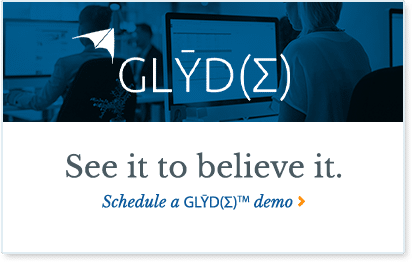The Government Accountability Office (GAO) made headlines recently when sharing news that 11 of 12 fictitious applicants obtained coverage for health insurance through the Federal marketplace. GAO targeted the Federal marketplace with secret shopping – constructing fictitious applicants who should not have received health insurance.
The secret shopping applicants provided invalid Social Security information or other information that should have made them ineligible for health insurance through the Federal marketplace. Yet still, the system prevented only one of the secret shopper applicants from receiving health insurance.
Learn about our CMS Fraud Detection & Investigation Services
How could this happen?
The Centers for Medicare & Medicaid (CMS) is tasked with the overall responsibility of balancing program integrity concerns with consumers’ ability to “effectively and efficiently” select Federal marketplace health insurance coverage. If the scale leans too much toward enrollment efficiency, the effect can be gaps in areas of program integrity.
For example, the GAO report notes that the contractor responsible for processing enrollment documentation for CMS is not required to seek out possible fraud. The contractor only is required to inspect the submitted documents to identify those that have been “obviously altered.” Contractor executives told GAO “…the contractor does not certify the authenticity of submitted documents, does not engage in fraud detection, and does not undertake investigative activities.”
Unfortunately, the overarching duty to avoid placing any undue burden on Federal marketplace consumers makes it impractical to implement front-line program integrity controls, such as having applicants show original documents when applying for health insurance or requiring in-person authentication. This, in turn, limits CMS’ ability to respond to attempts at fraud within the Federal marketplace.
Medicare Advantage Fraud Demonstrates How Efficiency Can Compromise Program Integrity
Over a decade ago, a similar drive toward enrollment efficiency left unsecured gaps for fraud and abuse in the Medicare Advantage (managed care) program.
Efforts by CMS to facilitate high enrollment in the program without an equally weighted up-front focus on integrity controls ultimately left the door open to various forms of fraud and abuse, including abusive marketing schemes and even enrolling Medicare beneficiaries into health plans without their knowledge or consent.
Not until several years later was CMS able to implement effective program integrity controls to detect and combat fraud in Medicare Advantage.
Costly Lack of Medical Claims Review Processes & Controls
GAO points out subsidies get paid to the insurance companies, not the individual applicants. Also, GAO acknowledges its results cannot be generalized to the entire program.
Still, the lack of controls suggests the Federal government could be misspending billions of dollars annually on people who do not qualify to receive subsidized health insurance through the Federal marketplace. To avoid the similar mistakes of the past as evidenced with the Medicare Advantage program, CMS should focus on proper integrity controls as early as possible over this costly program.
The Benefits of Secret Shopping: Ensuring Program Integrity & Preventing Healthcare Insurance Fraud, Waste, and Abuse
IntegrityM has direct experience with how effective secret shopping can be to detect vulnerabilities of potential fraud and non-compliance in the health insurance industry.
Over a 3-year period, IntegrityM deployed a team of almost 200 secret shoppers to cover Medicare Advantage marketing events across the nation and make recommendations to CMS regarding improvement of their compliance monitoring tools.
IntegrityM developed the Marketplace Surveillance Tracking System (MSTS) to track the secret shopper activity, assignment of shops, and reporting. This work included secret shopping of Medicare Advance public marketing events, monitoring of marketing practices to dual eligible enrollees, and reviewing health plan practices as they affect vulnerable populations such as non-English speaking beneficiaries, physically and/or mentally challenged persons, and those with limited income or low education.











